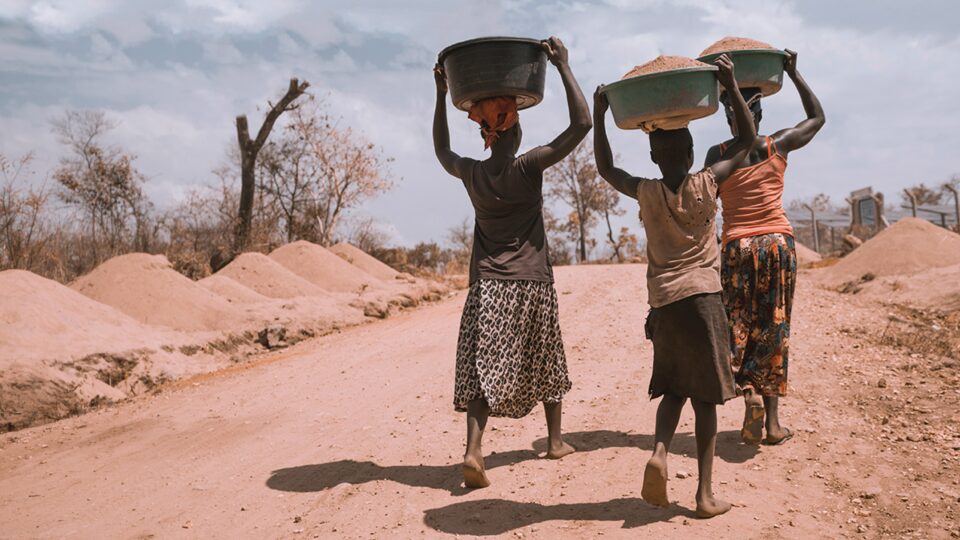
Why Uganda? This is a great question best answered by our Ugandan brothers and sisters living to make the name of Christ known and cherished there. Here’s what my Ugandan pastor friend had to say about this:
Most of the world . . . knows that Uganda is 89% Christian, but when you look at the spiritual [state] of the nation it’s not all that what is being projected. . . . It is true that Uganda has a number of churches and . . . in my home district there are over 300 “born again” churches. . . . Yet the impact of the spiritual life is not evident simply because everyone is professing “he’s a Christian, he’s a Christian.” What does that really mean in real life?”
Our brother asks an insightful question. What’s the impact of the “spiritual life” of the many who profess allegiance to Christ while they deny him by their life and doctrine? He’s concerned that many of his countrymen don’t know the truth of Christ, and this has profound effects on the church’s witness.
Pastor Paul goes on to say,
The understanding of the church, the understanding of the gospel and how church life ought to be to reflect life is really lacking. [This] is . . . one of the challenges that we have in Uganda . . . the continued accumulation of cultic teaching that is sprouting, mushrooming from every corner. It is a very confused atmosphere . . . that needs the true gospel to penetrate and to begin to reshape both the existing churches but also to plant healthy, authentic churches.
Inauthentic witness can be more damaging than no witness at all. The result isn’t merely a lack of knowledge, but a false understanding that can make it difficult to discern the truth of Christ from lies and deception. In Uganda, this has led to a proliferation of cults, as our brother Paul puts it so vividly, “mushrooming from every corner.”
What happens when one hears the gospel in such an environment? How can Ugandans distinguish the truth amid the cacophony of confusion? How can they discern that the blessing of Christ is far better than prosperity teaching that uses the name of Christ to rob people of the very thing it promises? How will people from surrounding regions, especially less reached regions, know Christ if the churches they interact with preach a false gospel? How can the true gospel stand out against the counterfeit ones?
To answer these questions, our brother looks to the institution God designed for this very purpose: the local church. He says,
When you look at the number of churches, most of them are actually being pastored by people who just know how to read the scripture, but actually they can’t interpret scripture. They can’t really apply scripture biblically and that is why all of these false teachings are so rampant. For example, the pastor in the village just reads the Scripture and begins to say whatever he wants to say because what else does he know? And so I think the role of missionaries should be to really come and work with the leaders and influence the leaders and train and disciple leaders so that they are able to disciple their own people and their own people are able to be sent out to go and plant healthy churches. . . . We are a spiritual country, but we are in a spiritual crisis.
Uganda’s spiritual crisis centers on the identity and message of Jesus. To bring clarity, we need healthy local churches full of committed Christians who will confront the confusion of who Christ is in Uganda.
The need is overwhelming. A pastor told me of his discouragement after teaching and training pastors all over Uganda, “I preached the word in so many churches, but what I saw again caused me to cry to the Lord for revival and salvation for this country.”
The answer isn’t more training. There has been a lot of training in Uganda. As one brother told me, “The reality on ground is that although there has been massive training and planting of churches, healthy churches are very few as you know.”
Simply bringing knowledge to a crowd of people is not enough. We need faithful Ugandans working together to plant healthy churches in every town.
Our brothers sojourning in Uganda do not need “us.” All they need is Christ. Nonetheless, we have the privilege of living in Uganda to strengthen the brothers there to depend on Christ alone. We join them in the battle to make the name of Jesus clear through the ministry and discipleship of faithful churches.
Why Uganda? Because Christ and his name are worth it. Because we love our brothers and sisters laboring there. Because Jesus has commissioned us, wherever we are, to contend for the gospel even as we journey to our true country. It is a worthy cause to partner with our Ugandan brothers and sisters for the sake of Christ, the clarity of his gospel, and the strengthening of his church.
Want More Content Like This?
We will deliver Reaching & Teaching articles and podcast episodes automatically to your inbox. It's a great way to stay on top of the latest news and resources for international missions and pastoral training.
